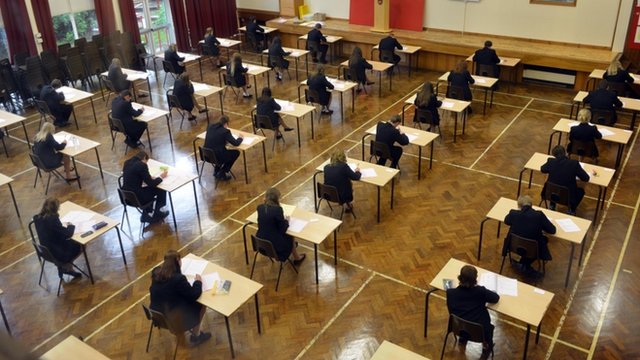 This is the text of a Guardian article by Sarah Marsh looking at alternatives to GCSE provision that was stimulated by a consideration of the provision being developed at Bedales school. Here is some of an email that I wrote to the Guardian when they asked me about alternatives to GCSE provision. But yes, there is certainly a perception amongst some people that iGCSEs are easier and I believe that a significant proportion of (particularly independent) schools offer them as an alternative. I don't know enough about the independent sector to comment in detail, and I have no first hand experience, but I believe it may be the case that independent schools do try to offer extra curricular or enrichment or extension activities to their pupils, designed to develop skills such as problem solving, negotiation, leadership, and thinking skills. There are, of course, a number of reasons why it might be easier for independent schools to offer this kind of curriculum than for schools that are not in the independent sector. However, it is not just the independents that are doing this - I know of some 'free' schools and academies, as well as state maintained schools, that are trying to develop the curriculum in this way. There is a raging debate about free schools and academies, as you know, and there are all kinds of issues about them which you won't want to put into your article, I am sure. But what I do think is that the best teachers and leaders in education are often critical of the 'banking' model of education and are constantly trying to develop curricula which are about balancing process and product, and which are also concerned about praxis (in Freireian terms, praxis is about informed, committed actions which are concerned with enhancing community and building social capital, and which can shape the world in a dialogic fashion). The 2017 GCSE changes will have an effect, yes. I couldn't even begin to speculate on what might be happening by then, to be honest. Quite what the general election will bring, who knows, and if Hunt is our next education secretary, then there will be more calls for him to think carefully about the education system. In education, the world is moving so fast that the issues we are considering and thinking about are changing even as they are being worked on.
0 Comments
 This is what I said to Sarah Marsh of the Guardian when she asked me about low level disruption in classrooms. The link to the article is here It's not always the case that a silent classroom, or even a quiet classroom, is a good classroom. Narrating and articulating thoughts and actions can be a valuable part of the learning process for some children, and for many adult learners, too. And of course, what's 'disruptive' by some people's definition isn't disruptive for other people. If we think about the importance of process and of praxis in educating young people to become valuable citizens, engaging in worthwhile and fulfilling activities, we'd surely expect some chatter and moving about by learners to go with those ideas about the nature of curriculum. It's sometimes hard, when you are in a classroom, to judge whether and when noise and activity are constraining or hindering others' learning - or even the learning of the individual himself or herself. Sometimes, it's almost impossible to make that judgement. Sometimes (by no means always), low level disruption is an indicator of students not being engaged, perhaps because of the lesson content or mode of delivery. But it can also be an indicator of the time of day, day of the week, or even of the weather. Or of pupils being tired, hungry (sometimes chronically so), or disaffected as a result of the interplay of a myriad complex factors. Or, of them being interested, engaged, and enjoying themselves. Working as I have done for years with NQTs and in initial teacher education, I would say that 'behaviour management' is one of the hardest things for beginning teachers to 'get right'. And of course, as lifelong learners, we are always developing our knowledge and skills in this area; and we are always trying to ensure that we see each child as an individual, who lives in a social context (family, friends, etc) as well as in a wider political context, where sometimes 'being quiet' is seen as desirable, perhaps because a 'banking' model of education is being promulgated, where children are passive banks for knowledge. If we think that, then we may be less tolerant of chat, moving around and children being actively involved in their learning than if we reject that kind of model of education. |
About me...
I was a psychology and social sciences teacher for many years and now I am in the throes of a leadership, teaching and research career in HE. I care passionately about education. This blog will show you why and how.
Categories
All
Archives
March 2023
|

 RSS Feed
RSS Feed